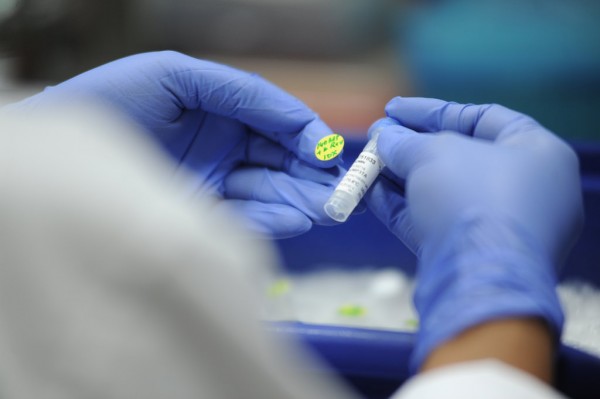By Dane Lorica, | November 28, 2016

In summary, PrEP is a means through, which people who are not infected with HIV but at substantial risk, can be prevented from contracting the disease. (AIDSVaccine/CC BY-NC-SA 2.0)
Australian scientists are working on a vaccine that can protect people from HIV.
A study conducted by the University of Adelaide and Queen Elizabeth Hospital involved the use of the common cold virus to introduce a vaccine to laboratory mice. Researcher Branka Grubor-Bauk said that an immune system exposed to the DNA-based vaccine showed positive response and "significant reduction" in the rate of infection affecting the animals.
Like Us on Facebook
She explained that "you need to get protection where your body encounters the virus and you need to stop the virus from either entering, or you need to stop it from replicating and stop it from spreading." The researchers hope that their study will make way for their discovery of HIV vaccine.
The team spent four years studying the possibility of creating a vaccine to protect humans from the virus.
"We were able to create this common cold virus that encoded proteins of HIV and we vaccinated mice and we were successful in creating immunity in mucosal surfaces," Grubor-Bauk explained. She added that the team also created a DNA vaccine that was administered intradermally just like how an influenza vaccine is used. She revealed that the administration of the vaccine helped the mice "get a systemic immunity throughout the whole body."
The Human Immunodeficiency Virus attacks a person's immune system. When compromised for 10 to 15 years, the illness can progress to a deadlier disease called AIDS. Early diagnosis and treatment can help in prolonging the life of the infected individual. This virus can be transmitted sexually due to its presence in the vagina, semen, and anal fluids.
The team of scientists is hoping to get more support and funding to conduct further studies on the matter and before the implementation of phase 1 clinical trials. This study on HIV vaccine was published in the journal Nature.
-
Use of Coronavirus Pandemic Drones Raises Privacy Concerns: Drones Spread Fear, Local Officials Say

-
Coronavirus Hampers The Delivery Of Lockheed Martin F-35 Stealth Fighters For 2020

-
Instagram Speeds Up Plans to Add Account Memorialization Feature Due to COVID-19 Deaths

-
NASA: Perseverance Plans to Bring 'Mars Rock' to Earth in 2031

-
600 Dead And 3,000 In The Hospital as Iranians Believed Drinking High-Concentrations of Alcohol Can Cure The Coronavirus

-
600 Dead And 3,000 In The Hospital as Iranians Believed Drinking High-Concentrations of Alcohol Can Cure The Coronavirus

-
COVID-19: Doctors, Nurses Use Virtual Reality to Learn New Skills in Treating Coronavirus Patients







